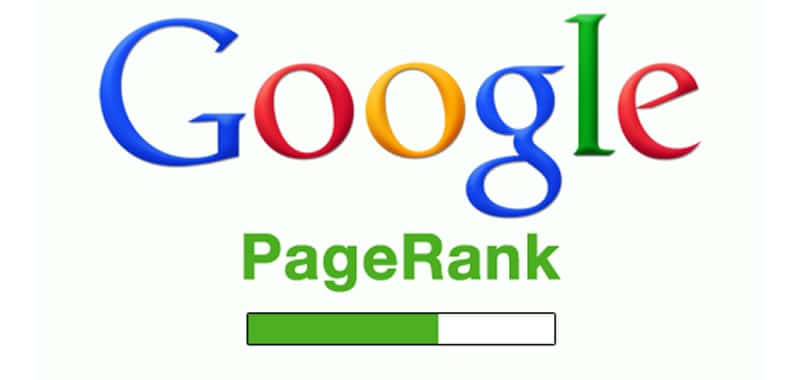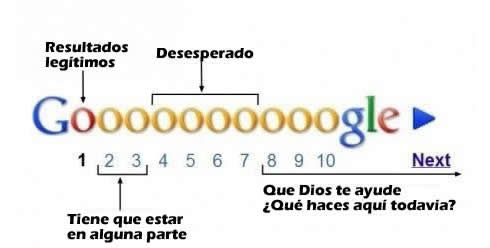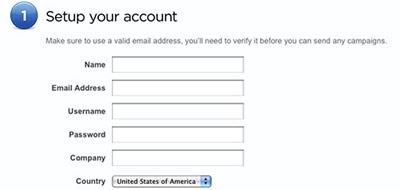What is the Google PageRank - How their rules work
When Larry Page and Sergey Brin decided to organize all the information on the network they established a basic concept in their algorithm: the links.

Confidence:
Google’s currency
Google analyzes an unimaginable amount of data from millions of websites and reduces them to the ten most relevant results for your search.
But the big company G loves having all kinds of information at their disposal to be able to show relevant Web pages for very specific searches.
After all, most searches are specific.
General searches such as "dog" represent a relatively small portion of the search chart.
As a website owner you should focus on three important factors for positioning in Google.
- Links Page
- Title
- URL
Understanding how to optimize these factors will allow positioning well for popular search terms, which will cause you to have more visitors on your website in the shortest period of time. But first of all we must understand how Google sees the network.
PageRank
When Larry Page and Sergey Brin set out to organize all the information on the network as enthusiastic and overflowing with a Stanford graduate, they established a concept as the basis of their entire algorithm: the links.
The links, according to their hypothesis were the currency of a new democracy World Wide Web, just as votes are the currency in an election.
After all, a voter only sends the ballot of the candidate they believe in and, in the same way, a website owner only creates links to another website that he thinks is really valuable... right?
Well no, not in a free market economy
By the time people realized that Google was positioning websites based on links, a new cottage industry was born.
People started buying, selling and exchanging links as if that were their job. In fact for some people it was. Today, the link industry is worth more than one billion dollars.
Even after breaking the purity of the Google founders' system, it was still incredibly innovative for its time.
In fact, the same link-based system, called PageRank, is still the basis of the most popular search engines in the world.
But today, dozens of restrictions apply to the fact that the links count as legitimate votes.
PageRank works in much the same way as popularity at school. In general terms, the more friends you have (and the more popular it is), the better.
So, if you have six popular friends, you are in a comfortable situation. If you only have three friends, but it turns out that they are the most popular of the school, then you will still be in a higher position.
But evidently the most enviable situation of all is to be the child you most like in the whole school. Then together he will be the most popular boy of all.

Now let's focus on the way Google sees PageRank. Technically, PageRank is an indicator of the relevance of a Web page for any given search. It is similar to popularity, which could be said to be an indicator of how much a certain person will like another person. Each Web page on the Internet is assigned a PageRank code that is a number from 0 to 10. The higher this number is, the more relevant the page is for Google and the more opportunity it will have to appear among the first search results. It is exponentially more difficult to achieve higher numbers of PageRank, the higher the number the more difficult it is to achieve it, and most Web sites never go over 4 or 5. It is quite difficult to grant a number 6 and the numbers 7 are very weird The numbers 8 and above are reserved for the Apple.com and Microsoft.com of the world and there are less than a dozen websites with the number 10 PageRank on the Internet, including Facebook, World Wide Web Consortium, Twitter and Google itself.
Like the popularity analogy at school, PageRank is based on how many other sites you like, that is, how many sites create links to your website. More important is that sites that have links to yours are popular, that is, that many pages have links to them, because your site will get a higher PageRank number. Therefore, if only one website has a link to your page and if it is a site with a very high number of PageRank such as Wikipedia, for example, your page will have a higher number than if you have 20 links from lesser-known sites. Obviously, the best situation of all is to be that guy that everybody likes in school and like many websites with different PageRank numbers. That will give the highest PageRank altogether.
The analogy goes even further if we consider the special rules Google has imposed on PageRank:
PageRank’s rules
- The more links and the higher the PageRank of the pages containing those links - the better
- New sites, due to their recent creation, incur a delay in receiving the benefits of their PageRank, which will last at least two months
- Sites that do not comply with the policies of the search engines (Bad-neighborhood sites) are not allowed to have PageRank and can negatively affect your site if you put a link to it
- PageRank is distributed among the pages of your site that are better linked. Although the page with a higher PageRank is usually the home page
A second important rule of PageRank is the following: who a good tree gets close, good shade covers (and vice versa). If you frequent drug addicts and marginalized people, you will be considered one of them. Likewise, if your website has anything to do with pornography, pills or bets, consider yourself outside the play. In short, if your site has some type of adult content, search engine optimization is not for you.
On the other side of the coin, if you keep your favorite students’ company, you can expect an impeccable reputation in the community. In addition, if any important educational, governmental or non-profit website links to your site, you can expect generous help from PageRank.
The third and last special PageRank rule is that it is distributed unequally among the pages of that site. Instead of being assigned to your website as a whole, PageRank is distributed among all the pages of the website based on the number and quality of links that each page has.
Although your home page is usually the page with the highest PageRank, since it is usually the page to which links are created from other websites, it is possible that another page of your site has a higher PageRank.
A similar analogy is that of the child who is only popular for his collection of cards or his pool in the house or perhaps his attractive older sister. He may be considered popular on the whole, but those specific aspects of his life are more popular than he is. If you have an internal page on your website that gets a higher PageRank than your home page, you should place an ad for your product or service on that page because you are more likely to have a better position in the search results.
CITE ARTICLE
For homework, research, thesis, books, magazines, blogs or academic articles
APA Format Reference:
Delgado, Hugo. (2019).
What is the Google PageRank - How their rules work.
Retrieved Nov 12, 2025, from
https://disenowebakus.net/en/google-pagerank






